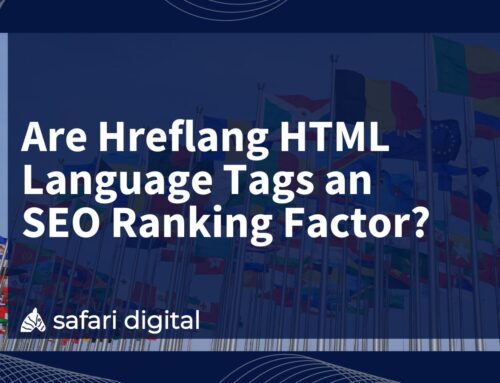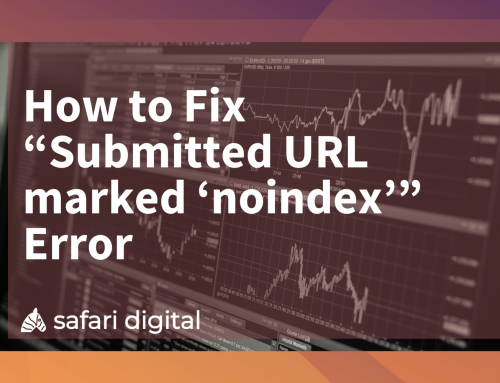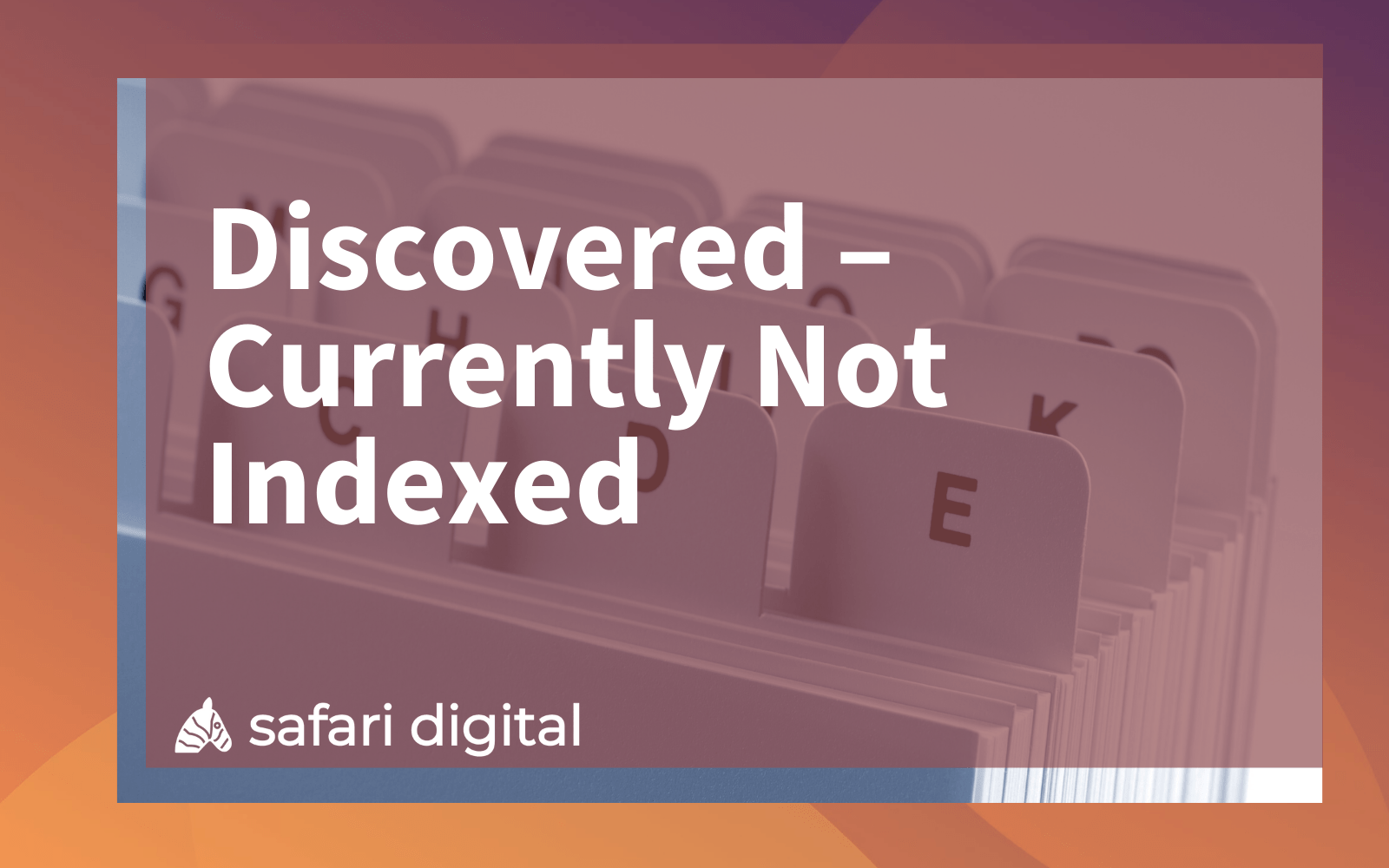
Discovered – currently not indexed status in Google search console means that Google is aware that these URLs exist, however they have not yet crawled them and therefore they are not indexed in Google search.
The status differs from the ‘Crawled – currently not indexed’ status which means the page was crawled by Google, but not indexed.
What Google has to say about the status
“The page was found by Google, but not crawled yet. Typically, Google wanted to crawl the URL but this was expected to overload the site; therefore Google rescheduled the crawl. This is why the last crawl date is empty on the report.”
In 2022, the ‘Discovered – currently not indexed status in Google search console’ error has become far more common than in previous years. It would seem that Google’s crawl bots are becoming more discerning in how they crawl and index content. This means that content needs to be of a high standard to ensure that Google bots routinely crawl and index new content.
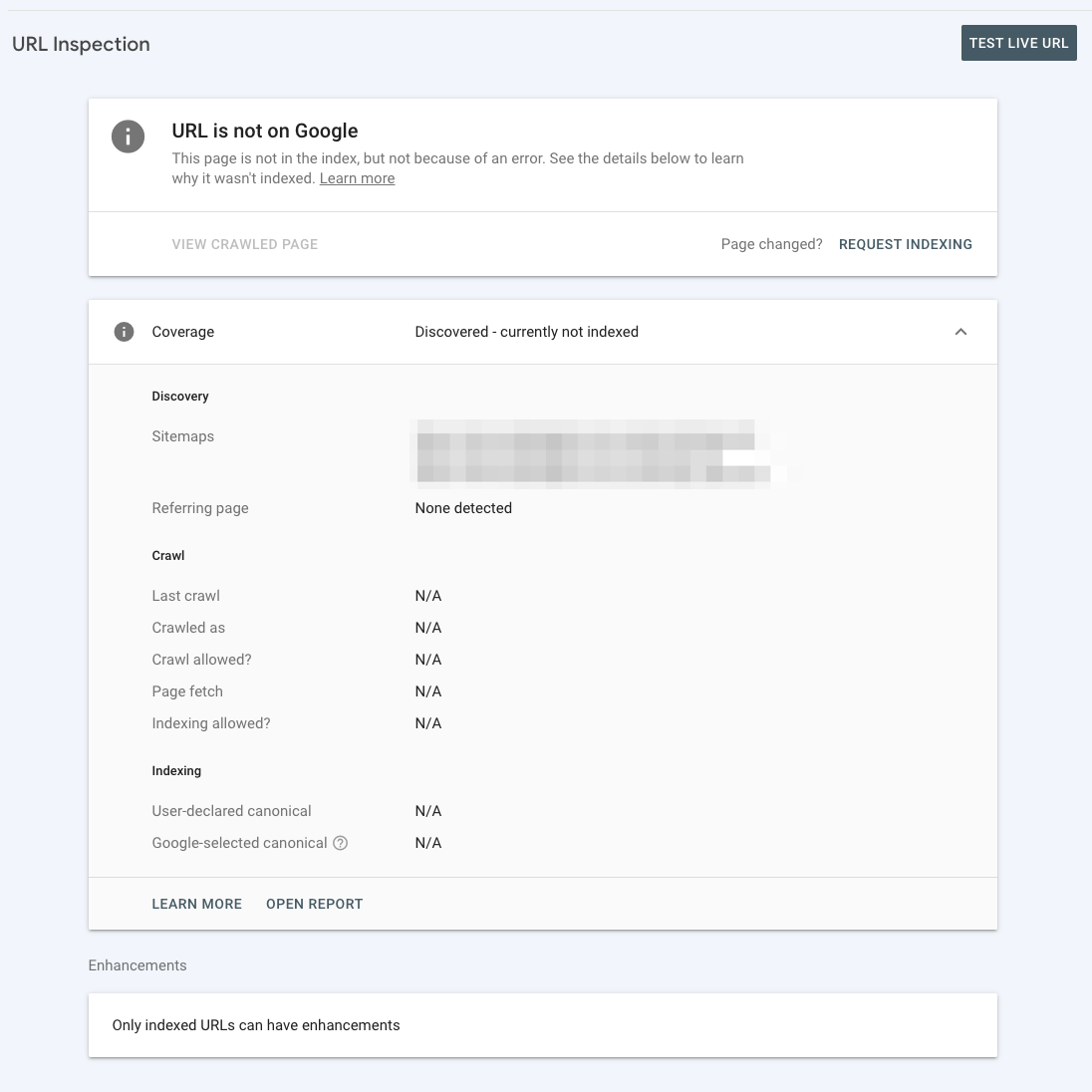
Troubleshooting the “Discovered – Currently Not Indexed” Status
There are several common reasons why you may be seeing the “Discovered – currently not indexed status” in Google search console, but some of the most common ones that we see include the following:
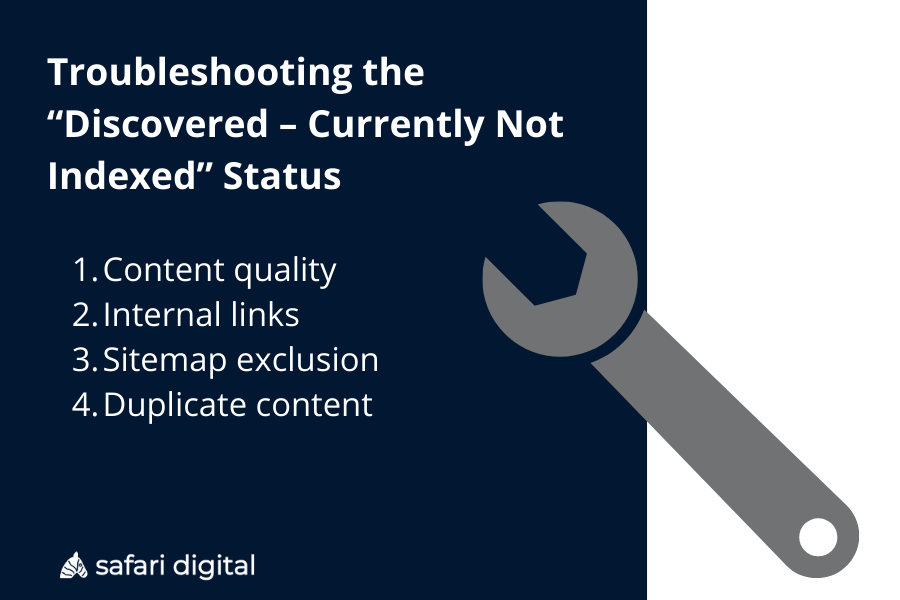
Content quality issues
If you are producing a high-volume of content, it is possible that the quality is not where it should be. In our experience, the most common reasons for content quality issues are that websites publish content that falls into one of the following categories:
• Short content – think less than 300-words
• Poorly written content – content that does not provide any value
• Poorly planned copy – does this content add any value to your website?
• Local SEO campaigns with a high volume of similar location pages. Local SEO is getting harder, pushing out a large number of pages where the only variable is the suburb name can cause the “Discovered – currently not indexed status” to appear in search console.
• Content is too similar to other webpages
The moral of the story? Before you publish content, ensure that it is worthy of being indexed in Google search. Google is far more likely to publish content that is fresh, original, and provides genuine value to search users.
No Internal Links
Your internal linking structure plays an important role in communicating page value to Google. When you publish a new piece of content, it is a good idea to update any relevant pages on your website with links to the new content. By adding internal links, Google will be able to effectively understand the context of new content and is more likely to index it accordingly.
Sitemap Exclusion
If you are using a static XML sitemap, it is likely that the page was not added to the XML sitemap when it was created. We would suggest switching to a dynamic sitemap that automatically adds new URLs as they are created.
If the URL is not included in your XML sitemap, Google is likely to think it is less valuable in the scheme of your website and therefore it may be subject to being excluded from index.
Duplicate content
Is this content taken from another website? In some cases (particularly e-commerce) you may be using supplier content or specifications that reuse large copy blocks. While Google is vague around how duplicate content impacts your rankings, it is important to publish content that is unique and valuable.
Wrapping Up
In 2022 (more than ever), Google is being far more selective with what it chooses to rank, and what it chooses to exclude. If you are seeing the Discovered – currently not indexed status in Google search console for one or more pages on your website, we recommend that you trouble shoot the above points to make sure that you are creating unique, valuable content.



